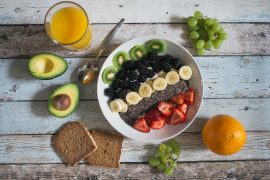By Emily Folk
One of the first things that every baby needs is their first meal. After you bond with your baby, the ritual of feeding them regularly is an intimate part of your daily routine. What many mums don’t expect is the many changing needs that your child will require as they age.
Growing children all need to eat something different, depending on how old they are. It can be difficult to tell when their diet needs alteration, especially when you’re caught up in the busy daily life of taking care of one or more kids.
Read on to learn how children’s diets need to change as they develop. This guideline will help you figure out what your child needs to eat, along with what may help or hurt their diet.
Birth to six months
After a baby is born, new mums can provide the nutrition their newborn needs through breastfeeding. For the first six months of life, exclusive breastfeeding is recommended, according to the World Health Organisation.
You’ll learn when to feed your baby and how often depending on how they act. When they’re awake, alert and ready to focus their attention on food, they can enjoy their next meal.
Six months to one year
Around six months, babies are able to sit up on their own, recognise food and open their mouths to indicate that they’re ready to eat.
This is when you may want to introduce soft solid foods. They’ll be ready to handle chewing, and they’ll also have different nutritional needs. After six months, babies need more iron. This can be found in iron-fortified baby cereals, meats, fruits and vegetables.
One to two-and-a-half years
One-year-old children require 1,000 calories per day, so this is when they can eat snacks in between their meals. Some mothers opt to use breast milk or formula as the snacks, but solids are also fine.
As they grow to ages two and two and a half, your child should be eating from the four basic food groups every day. They include:
- Meat
- Eggs
- Dairy
- Fruits
- Vegetables
- Flour products
Certain foods should not be included in their diet, since toddlers are more susceptible to choking. Problem foods like hot dogs, nuts, grapes and popcorn should be cut into the smallest pieces possible if they’re part of a meal or snack.











